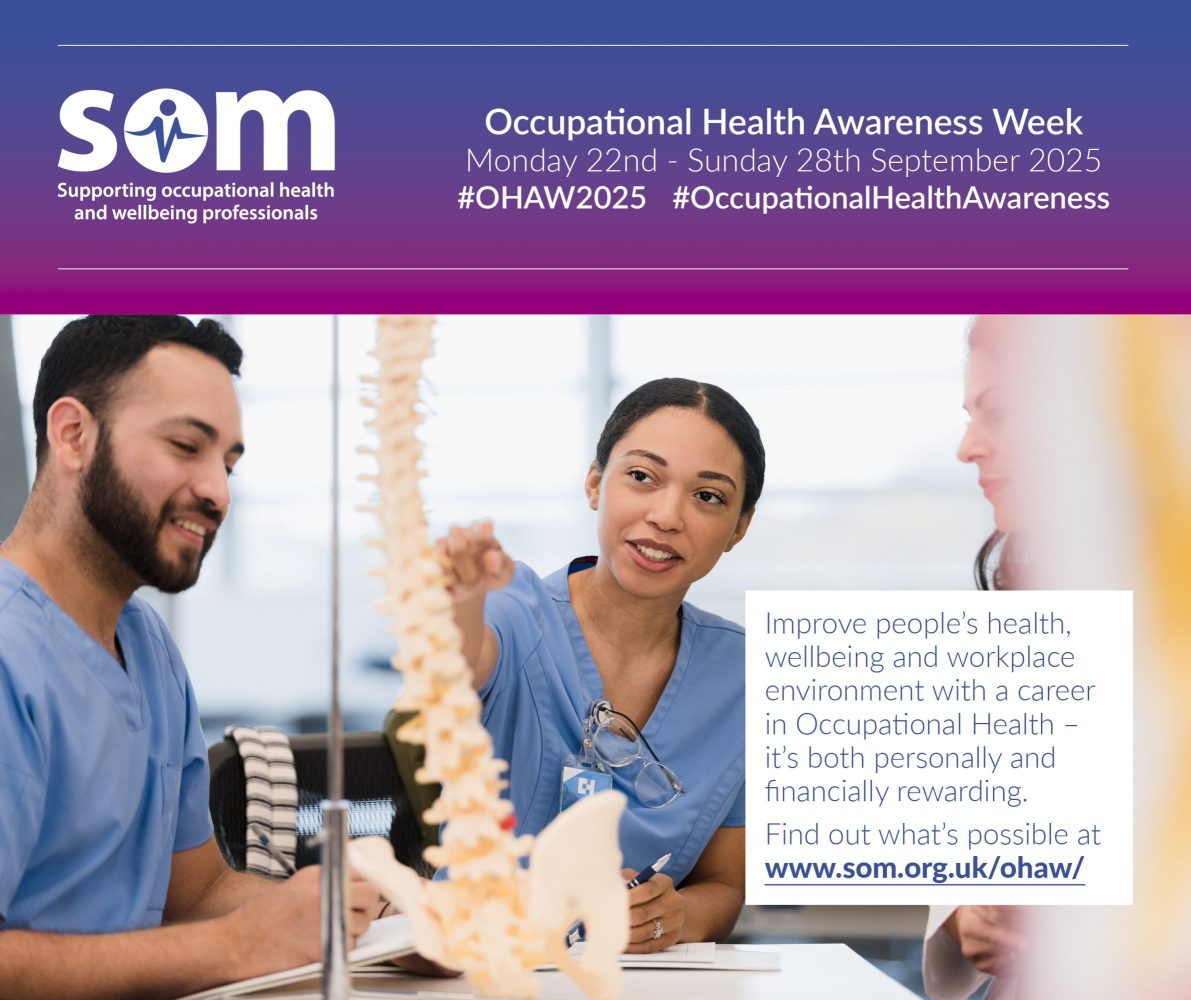News | Elisha Jadav | 22 September 2025
Occupational health awareness week 2025
22 to 28 September is Occupational Health Awareness Week (OHAW) and an opportunity to highlight the value and importance of providing occupational health support in the workplace.
Occupational health maintains the wellbeing of employees, preventing and removing ill-health and developing solutions to keep staff with health issues at work.

How occupational help contributes to workplace retention
Led by The Society Occupational Medicine, OHAW 2025 is focusing on HR professionals and how occupational health helps to increase workplace retention levels.
At NLPSS, our occupational health and wellbeing services are managed through a centralised hub with face-to-face services provided by specialist teams at several locations across the trusts we serve. We aim to provide proactive and agile support to meet the changing needs of our partners and the combined 40,000+ customers who make up their workforce. Our teams help to keep staff well so they in turn can deliver their best performance for the benefit of their patients.
What type of occupational health services do we provide?
Our shared occupational health and wellbeing service provides a range of support for our partner organisations and their customers, as well as our own staff. This includes:
- Health surveillance and monitoring
- Occupation-related assessments
- Disability and chronic health condition employment support for staff and managers
- Assessment and advice with regard to manual handling and display screen equipment
- Immunisations
- Confidential referrals to psychology and physiotherapy
- Advice for human resources teams and managers
- Ill-health medical reviews or retirement
How we are supporting OHAW 2025
To mark the week, our occupational health and wellbeing team are sharing information and resources to equip trust staff across our partner sites with the tools and knowledge that can help to support their health and wellbeing.
This includes practical guides produced by our team on workplace wellbeing topics such as; understanding stress and building resilience, and promoting psychologically safety in workplace environments. Emily Kenworthy, an NLPSS occupational therapist, also created this short video on 5 ways of wellbeing, an evidence-based way to promote good health and wellbeing. You can also read the transcript here.
For more information about NLPSS’ occupational health and wellbeing service, please visit this page on our website.
Further information and free resources for Occupational Health Awareness Week can be found on the Society of Occupational Medicine website.

